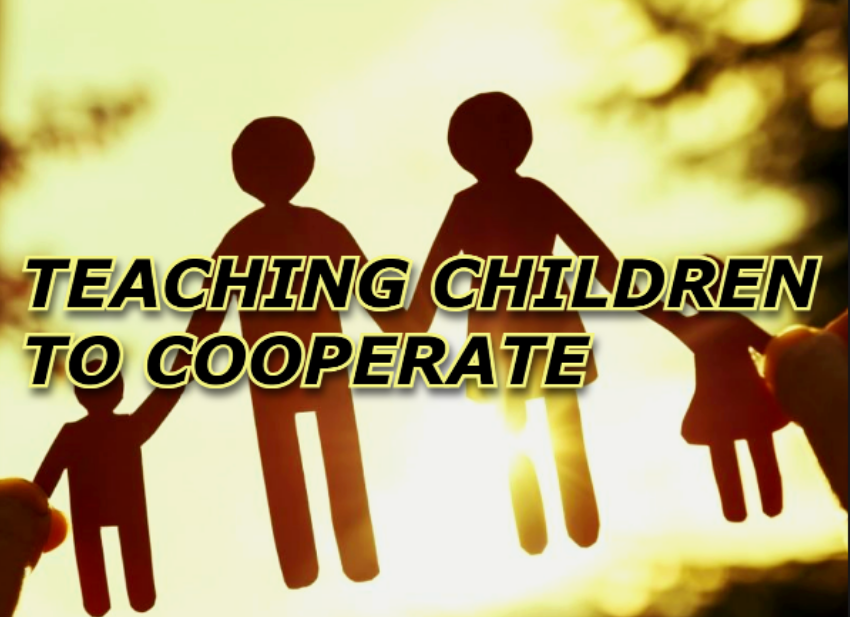Are you struggling to instill the value of teamwork in your children? Do you find it challenging to teach them the art of cooperation? If so, you are not alone. Many parents face difficulties when it comes to nurturing teamwork skills in their children. But fear not, for this article will provide you with a comprehensive guide on how to foster cooperation and create a strong sense of teamwork within your family.
In the following sections, we will explore various strategies and techniques that can help you establish a supportive home environment conducive to teamwork. From learning through play and open communication to developing problem-solving skills and empathy, we will delve into the key aspects that contribute to creating a cooperative atmosphere within your family dynamics. So get ready to embark on this journey with us as we equip you with practical tools and insights that promise to make the task of nurturing teamwork an enjoyable and rewarding experience for both you and your children.
Building Strong Foundations: Establishing a Supportive Home Environment
In order to cultivate teamwork and cooperation in children, it is essential to create a supportive home environment that nurtures these qualities. The foundation of such an environment lies in fostering open communication, trust, and respect within the family dynamic.
One effective way to establish this supportive atmosphere is by implementing regular family meetings where everyone can express their thoughts and feelings freely. Encourage each family member to actively participate, ensuring that their opinions are valued and heard. This practice not only strengthens the bond between parents and children but also teaches kids the importance of active listening, empathy, and compromise.
Learning through Play: Encouraging Cooperation in Everyday Activities
Play is a powerful tool for children to learn and develop essential skills, including cooperation. By incorporating cooperative play into everyday activities, parents can create opportunities for children to understand the value of working together towards a common goal. For example, engaging in board games with siblings or friends fosters teamwork as children take turns, follow rules, and strategize together to achieve victory.
Additionally, role-playing activities allow children to explore different scenarios and practice collaboration. Encourage them to engage in imaginative play where they can take on various roles such as doctor-patient or chef-customer. By assigning different responsibilities and emphasizing the importance of communication and compromise during these pretend scenarios, children acquire vital social skills while having fun.
Open Communication: Fostering Collaboration and Problem-Solving Skills
Effective communication is the cornerstone of any successful team, and nurturing open communication within the family can greatly enhance cooperation among children. Encourage your children to express their thoughts and emotions by creating a safe and non-judgmental space for them to share. Teach them active listening skills, such as maintaining eye contact, asking clarifying questions, and summarizing what they have heard. By cultivating an environment where everyone feels heard and understood, you promote a collaborative atmosphere where problems can be tackled together.
In addition to fostering open dialogue, it’s important to teach children how to navigate conflicts constructively. Help them develop problem-solving skills by encouraging them to brainstorm solutions when faced with challenges or disagreements. Teach them the art of compromise by finding common ground where both parties’ needs can be met. By guiding your children through these processes, you empower them with lifelong tools for effective collaboration, preparing them not only for success in their current endeavors but also for future relationships and endeavors they will encounter.
The Power of Empathy: Teaching Children to Understand and Respect Others’ Perspectives
Empathy, the ability to understand and share the feelings of others, is a powerful tool in fostering cooperation and teamwork among children. By teaching our little ones how to cultivate empathy, we equip them with a deep understanding of different perspectives, laying the foundation for harmonious relationships.
One way to nurture empathy is by encouraging children to put themselves in others’ shoes. Encourage open conversations about emotions and help them explore how their actions can impact those around them. By teaching them to recognize emotions such as happiness, sadness, or frustration in others, we empower children with the skills needed to respond thoughtfully and compassionately. Through this process, they develop a broader perspective on the world and learn that by respecting others’ feelings and viewpoints, they can create an environment that encourages collaboration and cooperation.
Setting Goals Together: Developing a Sense of Purpose and Shared Responsibilities
One of the most powerful ways to foster teamwork in children is by involving them in setting goals and developing a sense of purpose. By engaging children in the process, parents can help them understand the importance of working together towards a common objective. Start by discussing with your children what they would like to achieve individually or as a family, whether it’s completing a challenging project or organizing a charity event. Encourage them to brainstorm ideas and express their aspirations.
To ensure a sense of shared responsibility, guide your children towards identifying roles and tasks that align with their individual strengths and interests. This not only empowers each child but also promotes cooperation as they recognize the value each person brings to the team. Break down the larger goal into smaller achievable targets, allowing for regular check-ins and celebrations of progress along the way. By actively involving your children in this process, they will develop valuable teamwork skills such as accountability, collaboration, and perseverance.
Navigating Conflict: Teaching Healthy Conflict Resolution and Compromise
Conflict is an inevitable part of human interaction, and it is essential for children to learn how to navigate disagreements in a healthy and constructive manner. Teaching them the art of conflict resolution and compromise not only equips them with valuable life skills but also fosters stronger teamwork within the family unit.
One effective strategy for teaching healthy conflict resolution is to encourage open communication. Encourage your children to express their feelings and concerns without judgment or interruption. Teach them active listening skills so they can truly understand each other’s perspectives. In this way, conflicts can transform into opportunities for growth, understanding, and finding common ground.
Modeling Teamwork: Being a Positive Role Model for Your Children
As parents, we hold an immense influence over our children’s behavior and attitudes. One of the most powerful ways to teach children the art of cooperation is by being a positive role model ourselves. Our actions speak louder than words, and by consistently displaying teamwork in our everyday lives, we can inspire our children to do the same.
Start by involving your children in activities that require cooperation, such as cooking together as a family or working on household chores. As you work side by side with your little ones, demonstrate patience, understanding, and the willingness to listen. Show them how collaboration leads to greater efficiency and success. By highlighting the joy that comes from working together towards a common goal, you’re instilling in them the belief that teamwork is not only rewarding but also essential for growth and achievement.
Celebrating Success: Recognizing and Reinforcing Cooperative Behaviors
When it comes to nurturing teamwork in children, celebrating their successes and recognizing their cooperative behaviors can be a powerful motivator. By acknowledging and reinforcing their efforts, parents can foster a sense of accomplishment and encourage them to continue working together harmoniously.
One effective way to celebrate success is through verbal praise. Take the time to genuinely acknowledge your child’s cooperative actions, praising them for their efforts in working as a team. Positive reinforcement not only boosts their self-esteem but also reinforces the importance of cooperation in achieving goals. For example, when your children successfully collaborate on a project or resolve conflicts peacefully, commend them on their ability to listen, compromise, and work together effectively.



